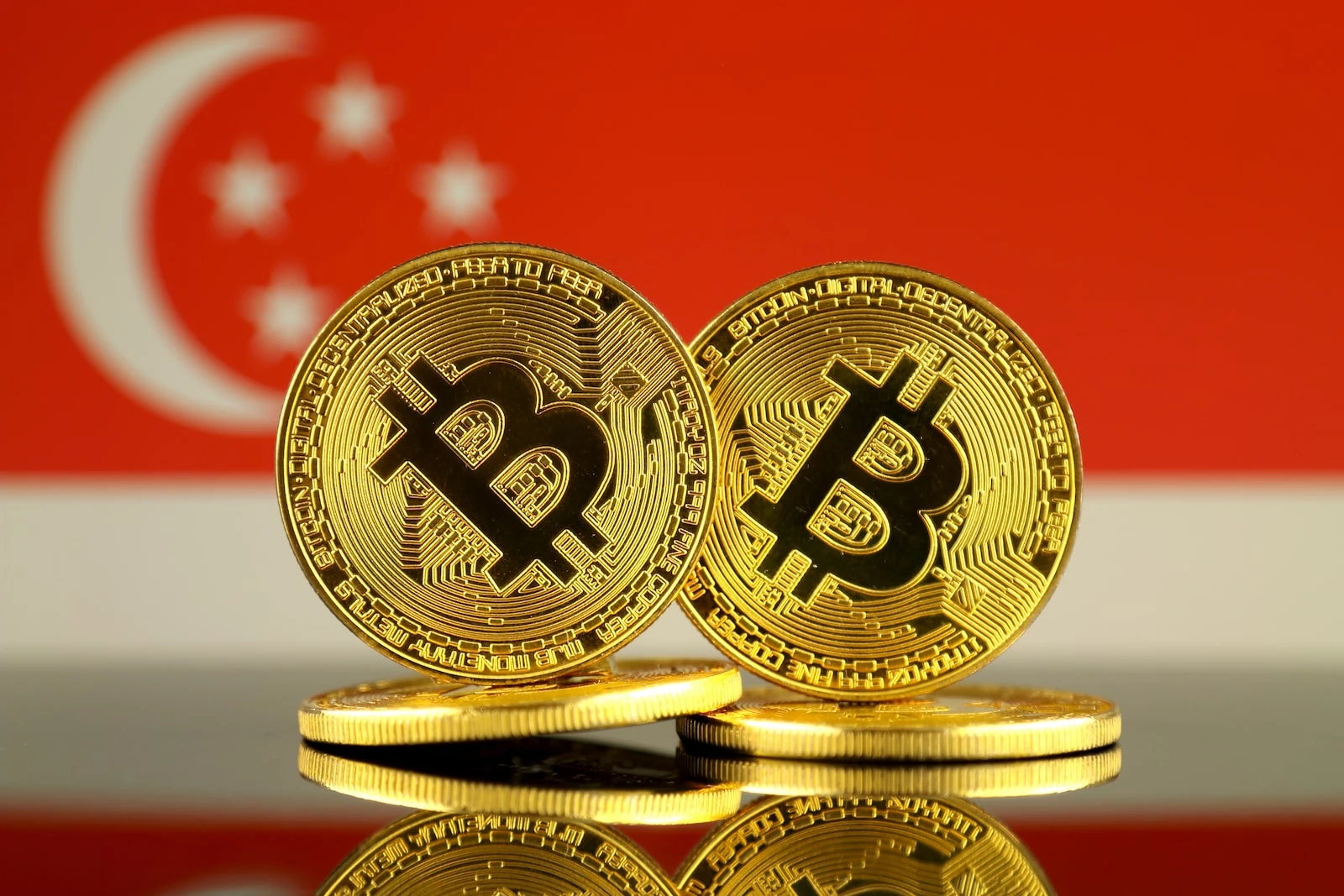原创 | Odaily星球日报(@OdailyChina)
作者|jk

新加坡,这个位于亚洲心脏地带、曾因其开放与审慎并存的金融政策而成为全球Web3创业者首选落脚点,如今正掀起一场前所未有的监管巨变。
2025年5月30日,新加坡金融管理局(MAS)正式发布针对数字代币服务提供商(DTSP)的监管回应文件,标志着新规即将在6月30日全面生效。此次政策不仅毫无过渡期,还以“极其有限的发牌标准”与“刑事责任”作底线,几乎一夜之间终结了曾被视为加密避风港的“新加坡模式”。
让我们来一览新规下八大要点。
1. 新规核心内容:月底之前,获得牌照或停止服务
新加坡金融管理局(MAS)于2025年5月30日发布的文件,正式确立了针对数字代币服务提供商(DTSP)的监管新规,其核心在于通过《金融服务与市场法案》(FSM Act)第137条,对所有在新加坡设有营业场所并向境外提供数字代币服务的个人或机构设定持牌义务。
MAS 明确指出,无论服务对象是否为新加坡本地客户,只要服务是在新加坡任何“营业场所”进行的,均须取得 DTSP 牌照,否则将被视为违法经营。此前,如果服务对象是海外客户,在新加坡注册的公司是无需获取牌照的。
更为严厉的是,MAS 在此次文件中拒绝设立任何过渡期。所有适用新规的主体必须在2025年6月30日之前,要么获得 DTSP 牌照,要么全面停止所有数字代币服务业务。MAS 表示,仅会在“极其有限的情况下”批准发牌申请,意味着绝大多数服务商并不具备继续在新加坡运营的条件。若违反持牌规定,将构成刑事犯罪,并面临《FSM Act》所规定的严厉处罚。
2. 哪些公司将会受影响?
受此次 MAS 新规影响最大的,将是那些未持有 DTSP 牌照、但在新加坡设有实体、办公点或核心团队成员的 Web3 公司,尤其是以下两类机构:
总部或主要业务设于新加坡的国际加密机构,尤其是此前以新加坡为亚太枢纽的交易所,如果其某些服务模块未获 DTSP 批准,仍可能触及监管红线。
新加坡注册但服务全球用户的 Web3 公司,未持牌的 DEX、钱包和跨链协议开发团队:以新加坡作为法律注册地、但业务面向境外的项目方,如部分 DeFi 协议、NFT 平台、链游开发团队等。
举例来说,如果某个去中心化交易平台(某个Uniswap fork 项目)或跨链桥团队的技术骨干团队在新加坡办公,即使面向全球用户,若未取得许可,也将被纳入合规风险范围。
3. DTSP牌照怎么获得?很难吗?
DTSP(数字代币服务提供商)牌照的申请门槛极高,MAS 已在最新回应文件中明确表示,仅会在“极其有限的情况下”授予该牌照(“A DTSP licence will only be granted under extremely limited circumstances.”)。换言之,获得许可并非一个开放性、常规性的行政流程,而是基于审慎监管逻辑下的特例批准。
首先,申请主体必须证明其具备完善的反洗钱和打击恐怖融资(AML/CFT)控制体系,包括客户尽职调查(CDD)流程、可疑交易上报机制、技术与网络安全防护、与第三方合作开展业务时的尽调流程、IT系统风控与网络安全措施(需满足 FSM-N31 通知中规定的最低网络安全要求)、内部合规架构(包括合规官与风险控制负责人等关键人员安排)等要求。
MAS 对申请人的合规能力、业务透明度、风控机制、人员资质都有系统性评估要求。特别是在客户身份识别、交易追踪与数据保留方面,DTSP 牌照持有者将面临与传统金融机构相当甚至更高的监管强度。
因此,可以明确地说,DTSP牌照不仅“难获得”,更是在政策逻辑上“不鼓励大范围发放”的一种许可制度。MAS 的监管目标并非帮助更多加密服务商合规落地,而是主动过滤掉高风险主体,最大程度降低新加坡本地因 Web3 活动所承受的声誉风险与金融系统性风险。
4. 远程办公人员:给国外公司远程办公可以,但仍有风险
MAS 对于远程办公人员的态度,在此次 DTSP 新规中表现得尤为严谨和具体,其核心逻辑可以归纳为一句话:只要你“人在新加坡、事在境外”,就可能触发持牌义务,哪怕你是在家办公。
MAS 明确指出,凡是在新加坡境内“营业场所”从事并向境外客户提供数字代币服务(DT服务)的个人,均需依据《金融服务与市场法案》第137条申请 DTSP 牌照。这里的“营业场所”定义极为宽泛,不仅包括正式办公室,还可能涵盖共享办公空间、甚至居家办公场所。这意味着,远程办公者并不当然豁免监管义务。
不过,MAS 为一类人群设立了例外情形——如果个人是受雇于一家外国注册、而且也仅面向外国用户的公司,并且其工作行为属于该雇佣关系的一部分,例如远程撰写代码或处理运营支持事务,那么该员工的工作本身不被视为违法,也不触发持牌义务。需要注意的是,这一豁免仅适用于正式的“雇员”身份,而非独立顾问、承包商或公司创始人等不具备雇佣合同关系的个体。
然而,在实际操作中仍存在大量自由裁量权的空间。例如,MAS 并未明确定义“雇员”是否包含项目创始人、持股人或联合创办人;也没有明确是否可以将部分职责外包而不影响合规身份。此外,若远程办公者在新加坡参与商务洽谈、拜访客户、或使用共享办公空间等行为,也没有说能否被认定为在新加坡开展 DT 服务,因而落入监管范围。
因此,对于在新加坡的远程办公者而言,仅仅依靠“工作不在境内市场”这一点,已无法构成充分的合规保障。MAS 的立场非常明确:只要个人身处新加坡,且其工作内容涉及面向境外的数字代币服务,就有可能被认定为违法经营,除非满足极为严格的例外标准。
5. 尽职调查规定更严格
在MAS此次发布的监管框架中,关于客户尽职调查(Customer Due Diligence,简称CDD)的规定高度严谨。MAS要求所有申请并持有DTSP牌照的个人或机构,必须建立完善的CDD制度,以应对数字代币服务中普遍存在的洗钱和恐怖融资(ML/TF)风险。
MAS并未在FSM-N27通知中设定统一的完成CDD的时限,而是明确指出,将在发牌时根据每家申请者的具体情况“因地制宜”地确定完成时限。评估因素包括客户的风险画像、业务模式的复杂性以及机构自身的合规能力。
在面对未来可能出台的CDD修订要求时,MAS并不会统一规定所有持牌人必须在何种情形下更新其原有的客户信息。相反,MAS要求DTSP建立内部评估机制,根据实际业务与修订内容自行判断是否需要重新开展尽调。
另外,MAS特别强调,在选择是否依赖第三方完成CDD工作时,DTSP必须对该第三方进行充分的尽职调查。具体来说,机构应建立内部审查流程,以评估第三方是否具备履行AML/CFT职责的能力。需要注意的是,MAS并不允许将已持有其他国家牌照的支付服务商或外国监管机构监管下的金融机构,自动纳入可依赖的“第三方”范围。
6. 若出现三箭资本类事件五天内报告,黑客类事件一小时内报告
根据MAS发布的相关通知,DTSP持牌人在报告义务方面需遵守两项关键规定,分别涉及可疑活动/欺诈事件的报告(FSM-N28)以及重大事故的紧急通报(FSM-N30):
首先,FSM-N28 通知要求,若发现涉及欺诈或可疑活动,并且该事件对持牌人的安全性、稳健性或声誉具有重大影响(MAS 不会对可疑活动或欺诈事件的“重大性”进行统一定义,全靠公司自己判断),则必须在五个工作日内向MAS报告。如果事件仍在调查中,报告中需说明当前调查状态,MAS有权要求补充信息。
其次,FSM-N30 通知规定,对于发生在技术系统、网络安全、数据泄露等方面的重大事故,尤其可能引发行业连锁反应或公众信心危机的情况,持牌人必须在一小时内提交初步通知。MAS指出,这项要求的目的是为监管部门争取反应时间,以研判事故对整个市场的潜在影响。
总结来说:欺诈和可疑行为报告时限为五个工作日,重大网络安全事故须在一小时内通报。
7. 已持牌、完全不用担心的公司有哪些?
根据新加坡金融管理局(MAS)截至2025年6月5日公布的信息,获得数字代币服务提供商(DTSP)牌照的公司数量极为有限,基本上都是耳熟能详的大公司。
其中,已知的持牌(包括持有数字货币支付牌照)企业包括Anchorage Digital Singapore、BitGo Singapore、Blockchain.com (Singapore)、Bsquared Technology、Circle Internet Singapore、Coinbase Singapore、DBS Vickers Securities (Singapore),OKX、Paxos、Ripple以及HashKey和GSR等知名机构。
此外,部分公司在《支付服务法案》(PS Act)、《证券与期货法案》(SFA)或《金融顾问法案》(FAA)下获得豁免,无需额外申请DTSP牌照即可提供相关服务。这类豁免通常适用于已在其他金融服务领域持牌并受到监管的机构。
8. 此举是为了新加坡的“金融声誉”
此次新规的核心出发点之一,新加坡金融管理局(MAS)对国家“金融声誉”的高度重视。MAS 在回应文件中多次强调,由于数字代币服务(DT服务)具有强烈的跨境属性与互联网特性,其匿名性和无国界的特点使其更容易被用于洗钱、恐怖融资、欺诈等非法活动。虽然许多DTSP的服务对象并不在新加坡境内,但一旦这些公司以新加坡为注册地或运营基地,一旦出事,新加坡将不可避免地承受全球舆论和监管连带影响。
因此,MAS 强调,其监管目标并非仅是遏制个别违法行为,而是要防止任何潜在风险对新加坡金融体系的声誉造成系统性冲击。在MAS看来,DTSP对新加坡的最大风险,不在于其直接对本地金融系统的渗透,而在于一旦这些机构被滥用,新加坡可能被视为纵容或监管不力的“跳板”司法区,这将严重削弱其作为全球金融中心的可信度与监管信誉。
可以说,这是一种“零容忍”的预防式监管思维:宁可放弃对高风险创新的包容,也不愿以国家声誉为代价。从这个角度来看,MAS 此举不仅是技术合规,更是一次对“监管声誉红线”的战略防守。
免责声明:本文章仅代表作者个人观点,不代表本平台的立场和观点。本文章仅供信息分享,不构成对任何人的任何投资建议。用户与作者之间的任何争议,与本平台无关。如网页中刊载的文章或图片涉及侵权,请提供相关的权利证明和身份证明发送邮件到support@aicoin.com,本平台相关工作人员将会进行核查。



